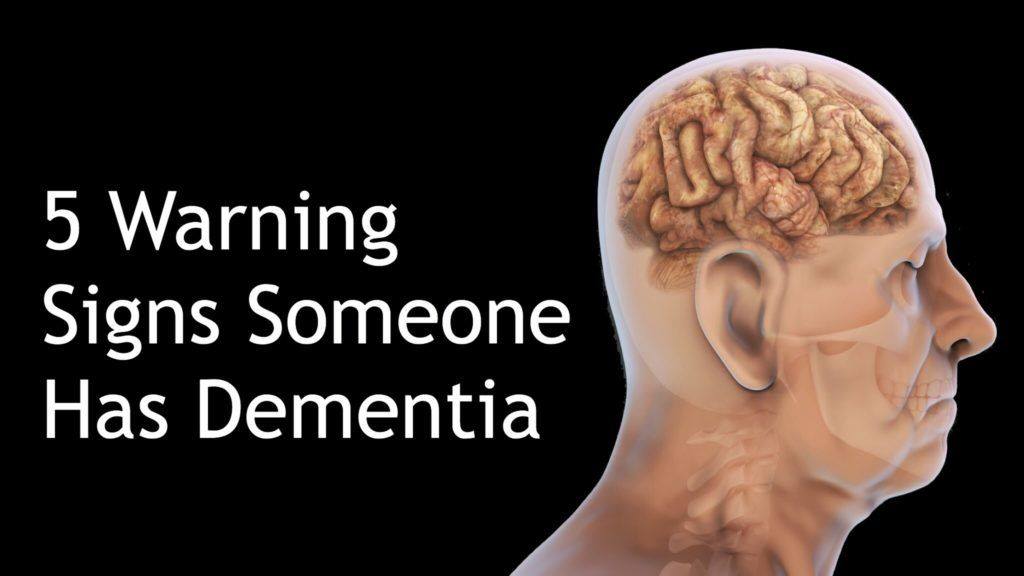Navigating the waters of aging and health can be challenging, particularly when concerns arise about conditions like dementia—a group of symptoms affecting memory, thinking, and social abilities severely enough to interfere with daily functioning. Recognizing the early warning signs of dementia is crucial, not only for the individual potentially affected but also for their loved ones, as early detection can significantly impact the management and course of the condition. Let’s dive into an in-depth exploration of the five warning signs that someone might be developing dementia, shedding light on this complex issue with sensitivity and care.
1. Memory Loss That Disrupts Daily Life
One of the most commonly recognized early signs of dementia is a noticeable and often concerning degree of memory loss. This isn’t just about forgetting where the car keys are; it’s a more profound forgetfulness that impacts daily activities. For instance, repeatedly asking the same questions, forgetting important dates or events, and increasingly needing to rely on memory aids or family members for things they used to handle on their own.
Why It’s Significant: Memory loss that disrupts daily life goes beyond the occasional forgetfulness associated with normal aging. It can signify that the brain’s cognitive functions are declining, a hallmark of the onset of dementia. Early recognition and assessment can lead to interventions that may help manage symptoms more effectively.
2. Difficulty Planning or Solving Problems
Another warning sign of dementia is a noticeable change in the ability to develop and follow a plan or work through problems. This might manifest as difficulty following a familiar recipe, managing bills, or keeping track of monthly expenses. Tasks that require concentration and organizational skills become challenging, and making decisions can be noticeably harder.
Why It’s Significant: These difficulties reflect changes in executive function, which is responsible for managing time, paying attention, switching focus, planning and organizing, and remembering details. Deterioration in these areas can significantly impact an individual’s independence and quality of life.
3. Challenges in Completing Familiar Tasks
As dementia progresses, even familiar tasks can become challenging. This may include driving to a known location, remembering the rules of a favorite game, or managing daily chores. The world becomes increasingly difficult to navigate, leading to frustration and sometimes withdrawal from activities the individual once enjoyed.
Why It’s Significant: This sign can often be one of the more visible indicators that something is amiss. When someone struggles with tasks they’ve performed effortlessly for years, it clearly signals a decline in cognitive function. Early detection and support can help manage these challenges and maintain independence for longer.
4. Confusion with Time or Place
Individuals with dementia may lose track of dates, seasons, and the passage of time. They may have trouble understanding something if it isn’t happening immediately or may become confused about where they are or how they got there. This disorientation can lead to significant anxiety and fear, further complicating daily life.
Why It’s Significant: This confusion isn’t just disorienting; it can be dangerous. It may lead to wandering, a common and concerning issue for individuals with dementia. Recognizing this early can help families and caregivers implement strategies to keep their loved ones safe.
5. New Problems with Words in Speaking or Writing
People with dementia may have trouble following or joining a conversation. They may stop in the middle of a conversation and have no idea how to continue, or they may repeat themselves. They may struggle with vocabulary, have trouble naming a familiar object, or use the wrong name (e.g., calling a “watch” a “hand-clock”). This can lead to withdrawal from conversations and social settings to avoid embarrassment.
Why It’s Significant: Communication is fundamental to our relationships and our ability to express needs, desires, and thoughts. When dementia impairs this ability, it can lead to isolation and depression. Early intervention with speech therapy and other communication aids can help maintain communication skills for as long as possible.
Conclusion: A Compassionate Approach to a Complex Condition
Recognizing the early signs of dementia is just the first step in a journey that requires compassion, understanding, and support. It’s important to approach concerns without judgment, offering love and assistance to navigate the challenges ahead. Early diagnosis can open the door to valuable resources, support networks, and medical interventions that can help manage symptoms, improve quality of life, and provide a roadmap for the journey ahead.
For families and individuals facing the possibility of dementia, the key is not to navigate this path alone. Seeking professional guidance, connecting with support groups, and educating oneself about the condition are critical steps. Remember, a diagnosis of dementia doesn’t diminish a person’s value or their capacity to experience joy, love, and connection. With the right support and care, individuals with dementia can continue to live meaningful lives, surrounded by those who cherish them.
